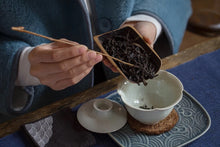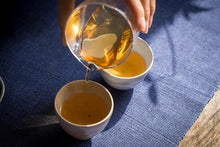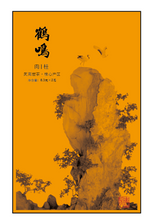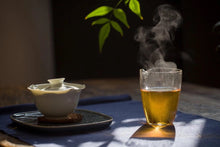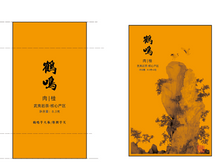
Wuyi scenery, four seasons of vegetation. Connected to the peace of nature, in the wilderness of Dianxun, on the high ridge guarded by the mountains, there is still breathing, hiding in the leisurely crevices of the mountains and forests. , located in the Dolomites of Beiling Peak, Jiuquxi, Wuyi Mountain, Fujian Province. In the late Ming and early Qing dynasties, monk Cijue visited here and rebuilt Baiyun Nunnery into a temple. Today, Tongxinshe Teahouse recommends a rock tea suitable for girls, "Wild Rou Gui" "I named this tea "Heming", Rou Gui, which gives people the impression of being strong and domineering, while the Rou Gui of Heming may be a "little freshness" that few tea lovers have tried.
Heming Rou Gui, inhabits the alpine microclimate mountain field on the top of Baiyun Temple in Wuyi Mountain. The wild tea trees are scattered in the fertile soil mainly composed of glutenite and weathered soil. Translating the natural language and the breath of the mountains, in the scorching red sun, the surging wild rhyme and the vast and clean atmosphere of the mountains and fields between the heavens and the earth are preserved. Wild stocking and traditional craftsmanship make its aroma significantly different from the traditional Rou Gui and the traditional Rou Gui. The aroma characteristics are relatively obvious, with cinnamon, milky, and woody aromas. But this cinnamon is very different from the cinnamon aroma we understand in the traditional sense. It was born in the mountains and wild, and the taste and aroma of Rou Gui have also changed. I would like to call it: elegant Rou Gui, the aroma is immersed in the tea soup, There is a touch of sweet-scented osmanthus and orchid, like a combination of the two. With the number of brewing times, the aroma will also change, and the taste is also different from the strong and domineering taste of traditional Rou Gui. A small sip has a alpine charm, the taste tends to be peaceful and sweet, and the coolness is obvious. There will be a rich floral fragrance in the mouth and throat. Tea pays attention to gradual progression. For new customers who are new to rock tea, the domineering Rou Gui may be a bit "heavy". This Heming Rou Gui, as the first taste of rock tea, is worth a try.
















